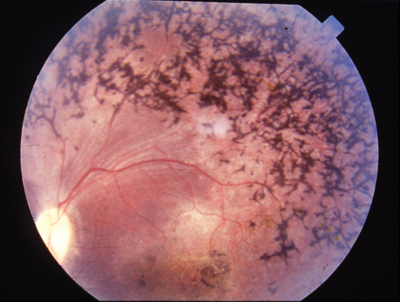Aphotosensitive protein found in green algae may someday restore visual function in patients who have retinitis pigmentosa (RP), according to a study in the April 6 issue of the neuroscience journal Neuron.
 |
| Patients who have retinitis pigmentosa may someday regain their vision, thanks to a protein from green algae. |
Results showed that after the mice received the protein, they achieved light-sensitivity for about six months, although they did not get back usable vision. Still, further research in this area may one day make vision restoration possible, the researchers say.
This is a great preliminary study which offers the foundation for persuasive new therapeutic modalities for the possible management of inherited eye diseases, says Diana Shechtman, O.D., assistant professor at Nova Southeastern University College of Optometry and a fellow of the Optometric Retinal Society. But, as the investigator said, further research needs to be done in order to understand its implication on visual perception of the blind human.

